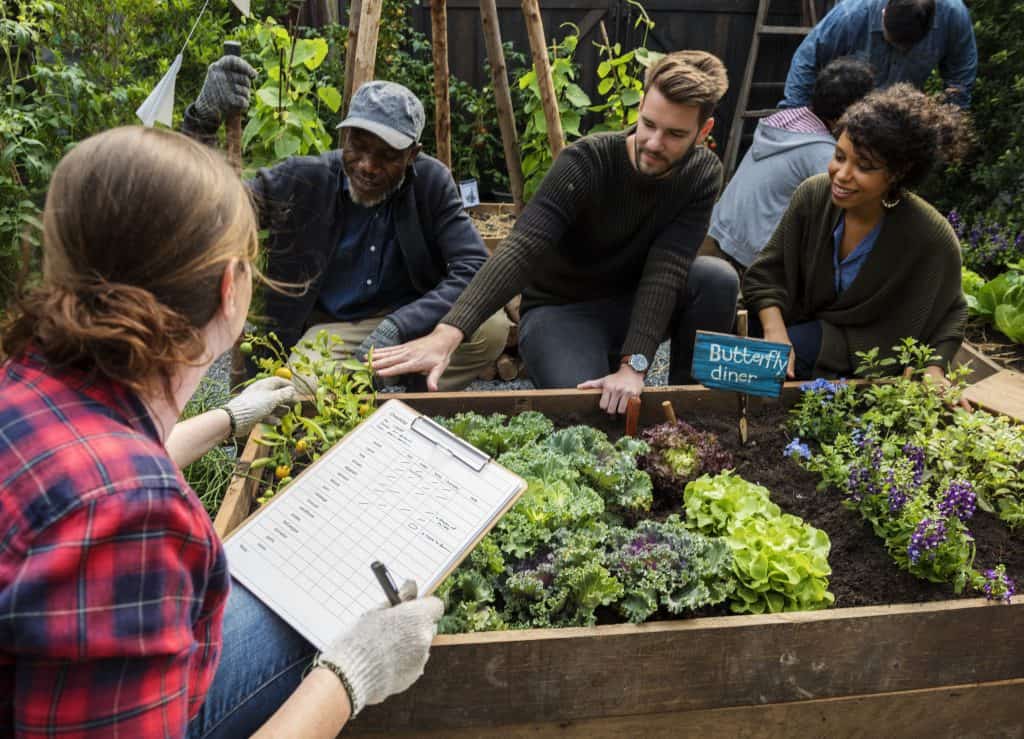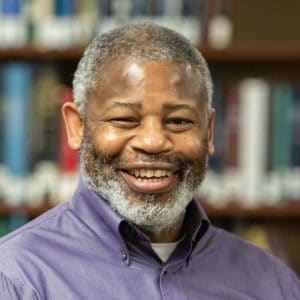My first church was Northside Chapel in Paterson, NJ. I spent two years there, and then the Lord moved me back to Grand Rapids, MI, which we in the Christian Reformed Church tend to view as “the Holy City.” I ended up at a church that was a merger between two churches. One was a Dutch immigrant church and the other one was a second generation, English speaking, Dutch church, and the two had decided to come together in 1994. They called me as their first pastor, and I thought this would be a good time to be doing ministry back in Grand Rapids.
I wanted to get back to my roots in the community, so couple of years later, I joined the neighborhood association in Roosevelt Park, a neighborhood in Grand Rapids. That was when I met a little white lady named Mary, and I can still remember the words that she said to me when I told her who I was and that I was a pastor in the neighborhood. She said, “I don’t like pastors.”
We were off to a great start. I found out later that there had been pastors on the neighborhood association board before, but they caused more trouble than actually bringing something of value to the work they were doing. So I got profiled as one of those pastor types who was going to come in and tell her what to. I told her, “No, Mary. I’m not here to tell you what to do or cause trouble. I’m just here as a neighbor and who wants to be a part. I promise you, I will not meddle.” But she had her eye on me.
Mary asked me to pray before the first of many new projects that got going between 1994 and today. I gave the prayer and she said, “Oh, you don’t sound like one of those crazy pastors.”
A couple years later I was voted in as the board president for the neighborhood association. Mary said, “Well, you know if I have to work with you, I’m willing to work with you. But don’t get in my way.”
I said, “Oh Mary, I am not going to get in your way.” Mary observed me for about four years to see if these Christian people would go rogue somewhere down the line.
After four years, Mary said, “Well, you’re okay. It seems like you’re not a bad guy after all.” We really developed this great relationship after a few years. Around 2011, Mary called me and said, “I need you to come to my apartment because I believe my husband is dying.” Little did I know that her husband, Andy, was at that time the metro editor for the Grand Rapids Press. I had known him over the years, but he was also very leery of church people. He had grown up a Methodist and was standoffish whenever he would talk to me. But this was the first time that I was ever invited into their house. I came over and he said, “I want Mary to leave.” When Mary had left he said, “I just want to ask you: Is this the end?” I answered, “Andy, I don’t know if it’s the end for you.” That’s when he asked, “What do I need to do to get right with God?”
Andy had never said anything religious in all the years that I had known him. We began having a serious spiritual conversation about what he needed to do. We began to talk about his spiritual life, and the Spirit showed up mightily. After about 45 minutes of conversation, Andy said to me, “Reggie, after having this conversation with you, I think I’m ready to go.” He added, “I want to ask you one more thing, if I can. Would you allow my funeral to happen at your church?” Andy had never been to our church, though his wife had. I said to him, “Absolutely.” I hadn’t asked my elders and hadn’t asked my council. I just said we were going to do it.
Andy said, “Okay.” Then he said, “Promise me one thing, Will you watch over Mary for me when I’m gone?” I said, “Andy, absolutely. I will watch over Mary when you’re gone.”
The next day he died.
We prepared to have his funeral at out church, and I remember it was a hot July afternoon. All the dignitaries were there to pay their respects to Andy. The writers for the Grand Rapids Press were mostly atheists or agnostics. The song before I got up to preach was John Lennon’s “Imagine,” which says, “Imagine there’s no heaven… And no religion too.” I probably had a couple of elders thinking, “What in the world has gotten into this preacher’s head, allowing folk like that up in the church?” So when I got up, I recited the conversation that I had had with Andy and recited the words from 2 Corinthians 5 about weakness and how God works through weakness–that it was not about how much faith Andy really had; it was really about the God who had him.
After that service Andy’s brother came up and said, “This is the first time I’ve been in church since I was young, and I’ve never been to a service where I felt the Spirit of God was there.” It was one of the most meaningful services I have ever been a part of. And because of that service, it opened the door for Mary to say, “Pastor, I trust you.” Mary was at our final service in 2015. That was only the second time that Mary had ever attended our church in the 20 years that I had known her.
When any transition happens, don’t we grieve that we’re losing something? We tend to grieve more about what we lose than look expectantly at what we gain.
Well, what is there to say? Maybe it’s to ask whether we who are in denominations and church leadership positions are using the right metrics when we think about the gift that the city opens to us. Are we using the same metrics that Jesus would use?
I think about the story of John the Baptist when Jesus came on the scene, when John was like a rock star. John came before Jesus, and he was even more popular than Jesus. But he told his disciples, referring to Jesus, “Here is the Lamb of God who takes away the sin of the world.” Later, it says that John’s disciples followed Jesus. I always found it puzzling that they followed Jesus after only eight hours. It must have been a terse conversation because I imagine that most of his disciples said, “John, you were there before Jesus. You have people coming out to you in the desert, wanting to be baptized by you in this river. You have more disciples than Jesus would ever have. Why are you now giving this up?”
No leader who likes notoriety, who prefers leadership and the power and prestige and everything that comes along with it finds it easy to step down. But John’s stance was, “He must become greater; I must become less.” Leonard Bernstein said that the hardest role to play in an orchestra is the second fiddle. Maybe when John said that he would let go, he knew what his role was–not to be the Messiah.
There may have been a lot of hype around John, with people saying, “Maybe you are the guy, not this other guy.” But I imagine John might have said to them, “My role is not to be at center stage. Rather, my role is to be like those whose credits come at the end of a movie and you barely see them.” That’s us. We’re part of the movie but our names are in very little fine print. Do we accept the role that we have? That Jesus is the main event and not us, if we expect to open up the gift of the city?
Can you imagine what they were saying that night? Something was about to happen. There was a transitioning that was taking place. When any transition happens, don’t we all grieve that we’re losing something? We tend to grieve more about what we lose than look expectantly at what we gain. But you have to surrender willingly or you will end up being resentful about having to give away what you worked for, what you feel is yours by right. But that night, I imagine John didn’t have an iota of resentment when he told his disciples, “Next time you see Jesus, when you hear these words that come out of my mouth, ‘Look, the Lamb of God who takes away the sin of the world,’ follow Him.”
John’s disciples followed Jesus because someone with some street cred had to tell them, convince them. They had to be told, “I’m not the Leader anymore. It’s her, or it’s him. I’m willing to let go because I know it’s not about me. It’s about Jesus. It’s about the one whom God has appointed to do the work that I can’t do. I can’t save you.” I think the hardest thing about doing this work is that we think that we’re doing the saving. But really, nobody asked us to come to the city to save anything. That’s what Mary was telling me.
Perhaps I was the one who needed to be saved. So Mary, contrary to my expectations, taught me a lot about how to open the gift of the city, more than others in the church could teach me. I’m thankful for that. I don’t think I would have stayed those 20 years if it had not been for people like Mary, who stepped into my life and helped me to let go, and let God.

